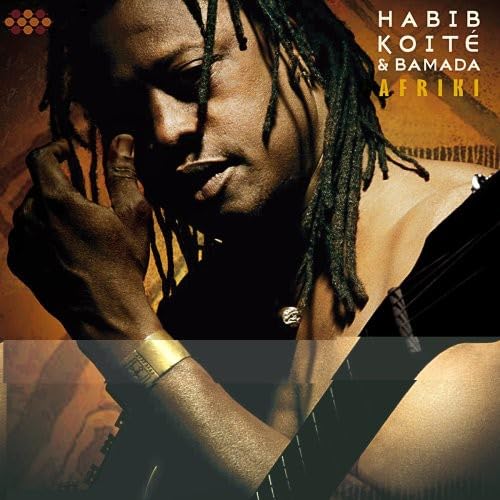Descripción
Product Description After a six year absence from the recording studio, Malian guitarist Habib Koite and his band Bamada return with a stunning new album. AFRIKI finds the group in fine form, and features an appealing set of songs that reflect Habib’s unique approach to the diverse styles of Malian music. From the Artist It seems ironic that an album that was recorded on three continents finds Habib focusing so intently on his roots. As always, Habib takes a unique pan-Malian approach, drawing on a wide range of cultural expressions from the diverse regions of his native land. A number of guest musicians added new flavors to the group’s sound. For the first time, Habib invited female singers to lend their striking tonality to his compositions. Hassey Sarré, the late violinist for Ali Farka Touré and Afel Bocoum’s, contributed haunting melodies and ornaments on “Barra”. On the song “Nta Dima”, Habib invited a troupe of traditional animal horn trumpet players in an effort to expose a fading musical legacy. The overarching theme of Afriki, which means “Africa” in the Malian Bambara language, is about the strengths and challenges of Mali in particular and the African continent in general. He speaks to a young generation of Africans in the hopes of convincing them to cherish their traditions and recognize the positive aspects of life in Africa.
About the Artist Malian guitarist Habib Koité is one of Africa’s most popular and recognized musicians. Habib Koité was born in 1958 in Thiès, a Senegalese town situated on the railway line connecting Dakar to Niger, where his father worked on the construction of the tracks. Six months after his birth, the Koité family returned to the regional capital of west Mali, Kayes, and then to Bamako. Habib comes from a noble line of Khassonké griots, traditional troubadors who provide wit, wisdom and musical entertainment at social gatherings and special events. Habib grew up surrounded by seventeen brothers and sisters, and developed his unique guitar style accompanying his griot mother. He inherited his passion for music from his paternal grandfather who played the kamele n’goni, a traditional four-stringed instrument associated with hunters from the Wassolou region of Mali. “Nobody really taught me to sing or to play the guitar,” explains Habib, “I watched my parents, and it washed off on me.” Habib was headed for a career as an engineer, but on the insistence of his uncle, who recognized Habib’s musical talent, he enrolled at the National Institute of Arts (INA) in Bamako, Mali. In 1978, after only six months, he was made conductor of INA Star, the school’s prestigious band. He studied music for four years, graduating at the top of his class in 1982. (In fact his talent was so impressive, that upon graduation, the INA hired him as a guitar teacher). During his studies, Habib had the opportunity to perform and play with a series of recognized Malian artists, including Kélétigui Diabaté and Toumani Diabaté. He sang and played on Toumani Diabaté’s 1991 release Shake the World (Sony), and Kélétigui Diabaté is now a full-time member of Habib’s band. Habib takes some unique approaches to playing the guitar. He tunes his instrument to the pentatonic scale and plays on open strings as one would on a kamale n’goni. At other times Habib plays music that sounds closer to the blues or flamenco, two styles he studied under Khalilou Traoré a veteran of the legendary Afro-Cuban band Maravillas du Mali. Unlike the griots, his singing style is restrained and intimate with varying cadenced rhythms and melodies. Mali has rich and diverse musical traditions, which have many regional variations and styles that are particular to the local cultures. Habib is unique because he brings together different styles, creating a new pan-Malian approach that reflects his open-minded interest in all types of music. The predominant style played by Habib is based on the danssa, a popular rhythm from his native city of Keyes. He calls his version danssa doso, a Bambara term he coined that combines the name of the popular rhythm with the word for hunter’s music (doso), one of Mali’s most powerful and ancient musical traditions. Ver más
El número de Modelo (ItemModelNumber)
890846001053
Peso
3.36 Onzas
Dimensiones
4.94 x 5.61 x 0.34 pulgadas
Fabricante es Cumbancha
La calificación que le dan a Afriki, 51 usuarios es de 4.7 sobre 5 estrellas.
Mali
Afriki
₡15.777
SKU: B000SKJR3S
Categoría: Mali
- Millones de productos
- Envíos garantizados
- Pago Seguro - No almacenamos tu TC
| Peso | 1,00 lbs |
|---|
Solo los usuarios registrados que hayan comprado este producto pueden hacer una valoración.

Valoraciones
No hay valoraciones aún.